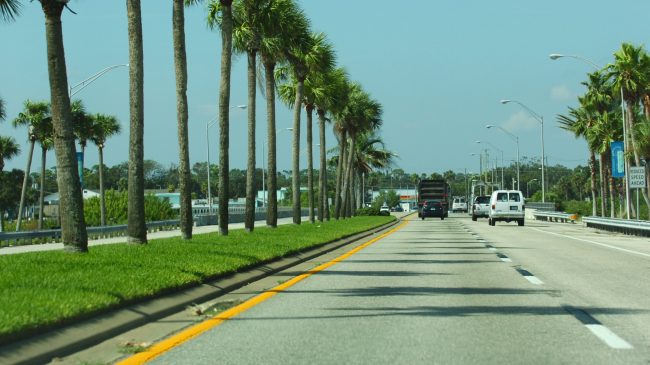Is suspending a person’s driver’s license an effective punitive measure? This is a vital question for Florida, which issued around 1.7 million license suspensions last year. That accounts for roughly 10 percent of Florida’s driving population, many of whom could be in danger of losing their livelihood for offenses unrelated to traffic safety.
While it may be wise to prevent someone from handling a vehicle when they have been driving drunk or causing accidents, some states have turned to license suspension as a broader form of punishment, stacking it on top of the fines and prison sentences courts already impose. Florida is among the most conspicuous members of this crowd: an estimated 76 percent of license suspensions in Florida are for non-traffic-safety related offenses.
Today, 86 percent of Americans use a car or motorcycle to get to work. Without a driver’s license, they are at risk of losing their job and their income. Many places of employment even require a valid driver’s license before hiring. These conditions have made the driver’s license an increasingly necessary tool to rise out of poverty and unemployment and cast a long shadow over the practice of punitive license suspension.
Individuals who ignore their license suspensions and risk driving often do so because they don’t have a better means of getting around. The National Highway Traffic Safety Administration estimates 75 percent of individuals with suspended licenses do take that risk and drive anyway.
In Florida, those who get caught while driving without a valid license are charged with Driving While License Suspended, Revoked, Canceled or Disqualified (DWLS). Even on a first offense, it can carry up to $500 in fines or 60 days of jail time. The potential fine doubles to $1,000 on a second offense and potential jail time increases to a year. On a third offense, Florida charges DWLS as a third-degree felony, which carries fines of up to $5,000 and a prison term of up to five years.
Any fines charged plus any prior debt must be paid for an individual’s license to be reinstated. Each time an individual is caught trying to drive with a suspended license, additional fines and fees make it harder for them to return to driving legally.
Florida regularly suspends its citizens’ driver’s licenses as a punishment for a vast array of civil and criminal offenses, with many offenses carrying a mandatory license suspension. While suspending licenses for unsafe driving has a commonsense value to the public, many of the offenses for which Florida suspends an individual’s license have no relation to traffic safety. These suspensions cut off a vital lifeline for individuals in the workforce and can herald an endless cycle of fines, court costs, and liabilities that make escaping the criminal justice system nearly impossible. Florida workers aren’t the only victims: the state itself spends man-hours and taxpayer dollars prosecuting and imprisoning individuals for the crime of ‘driving while license suspended,’ even while burdened with the tenth-largest prison system in the nation.
This policy brief explores the reasons Florida suspends driver’s licenses, the consequences of doing so, and the ways to handle these challenges moving forward.
